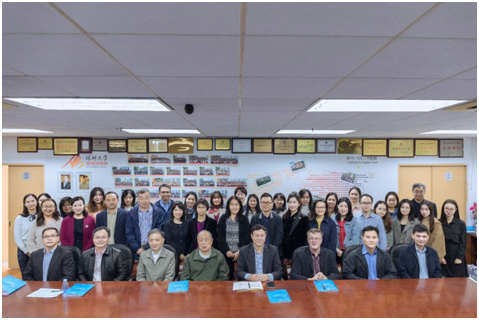
Nov. 31 - Dec. 1, 2019
Opening Ceremony
In the morning of November 30, Prof. Zhang Xueji, vice-president of Shenzhen University, Prof. Zhang Xiaohong, dean of the School of Foreign Languages, and linguistics group members of the School of Foreign Languages attended the opening ceremony of the Linguistics & Applied Linguistics Frontier Academic Seminar by Shenzhen University and Guangdong University of Foreign Studies.
Yunshan Senior Prof. Wang Chuming from the Key Research Base of Humanities and Social Sciences of the Ministry of Education of Guangdong University of Foreign Studies, vice-president Prof. Liu Jianda, former vice-president and deputy party secretary Prof. Chen Jianping, base director Prof. Ran Yongping and the expert group (11 experts) from Guangdong University of Foreign Studies attended this seminar.
Prof. Peng Xuanwei chaired the opening ceremony. Afterwards, vice-president Zhang Xueji, vice-president Liu Jianda, director Ran Yongping and dean Zhang Xiaohong addressed the meeting.
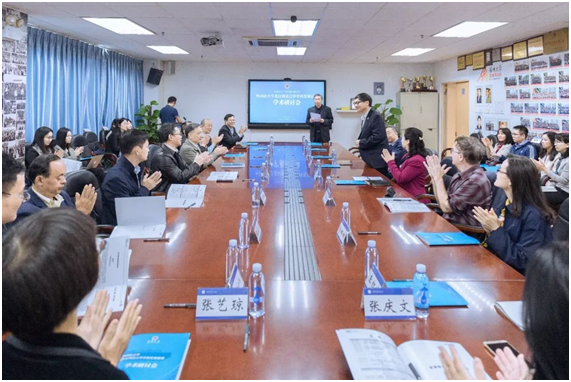
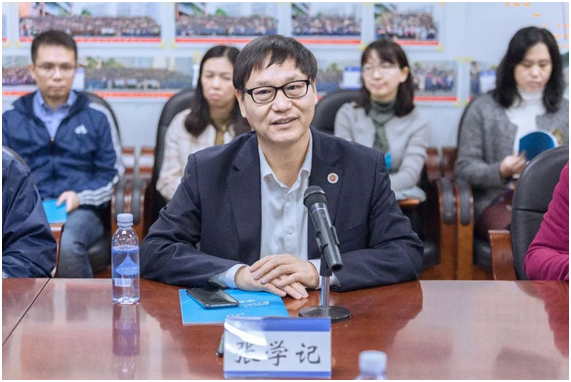
(SZU Vice-president ZHANG Xueji)
Vice-president Zhang Xueji pointed out that culture inheritance and international communication are extremely important for Shenzhen University to become a name card of Shenzhen city, a flagbearer of Chinese higher education and a benchmark among world-class universities. Among this, languages is a vehicle to achieve this goal. The cooperation between Guangdong University of Foreign Studies and Shenzhen University plays an essential role in promoting language development at Shenzhen University and building the Guangdong-Hong Kong-Macao Greater Bay Area.
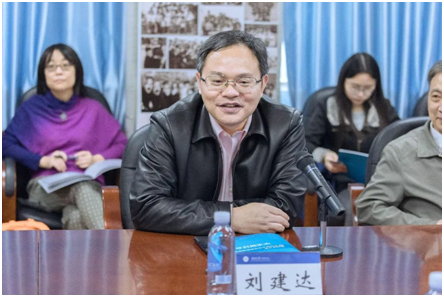
(Vice-president Prof. LIU Jianda, Guangdong University of Foreign Studies)
Vice-president Liu Jianda expressed his appreciation and expectations for the cooperation between the two universities. Prof. Ran Yongping stressed the importance of this seminar. He hoped the two universities could engage in extensive cooperation in linguistics and applied linguistics, and jointly promote the establishment of an academic community in this field in the Greater Bay Area.
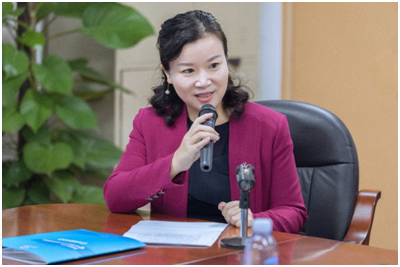
(Dean of the School of Foreign Languages, Prof. ZHANG Xiaohong)
Dean Zhang Xiaohong expressed that Guangdong University of Foreign Studies represented the top of academic studies. Under the personal guidance from the experts of Guangdong University of Foreign Studies, the School of Foreign Languages of Shenzhen University will develop. She also stated that the cooperation between the two universities will help to build a multidimensional, multi-angle and multi-level academic discourse environment.
Beginning of the seminar
In total, 15 keynote presentations were presented.
Prof. Wang Chuming introduced the new idea and method of his “Xu-argument” to address problems encountered concerning ‘Motion and Stability’ during English learning. He pointed out that the efficiency of foreign language teaching and learning could be improved by adding the “Xu-argument”.
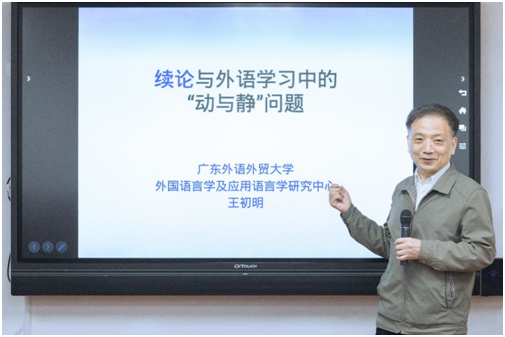
(Prof. WANG Chuming, Guangdong University of Foreign Studies)
Prof. Liu Jianda presented an overall introduction to his research - China’s Standard of English Language Ability, including its latest developments, theoretical framework and the establishment of a Chinese model suitable for English learning, teaching and assessment.
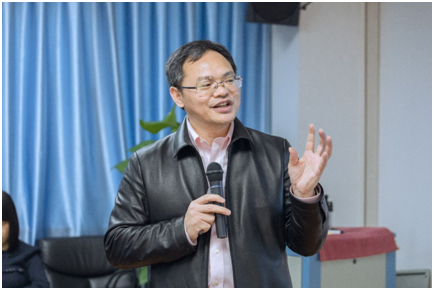
(Vice-president Prof. LIUJiandaGuangdong University of Foreign Studies)
Prof. Ran Yongping focused on the idea of language and pragmatic competence from the perspective of interpersonal pragmatics, and stressed the principal role of human speakers in language communication. He proposed that the non-language information function of language application should be deeply understood to make further progress in interpersonal practice and capacity study in language teaching and learning.
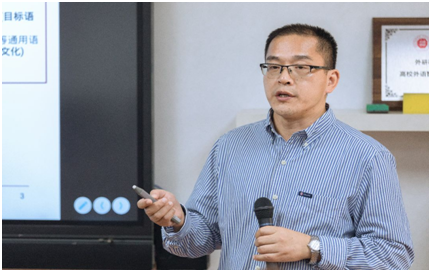
(Prof. RAN Yongping, Guangdong University of Foreign Studies)
Taking Habermas’ theory of Communicative Behavior as an example, Prof. Chen Jianping discussed the value of discourse mechanism research and pointed out that validity constructs of Habermas’ theory of Communicative Behavior play an important role in institutional discourse research.
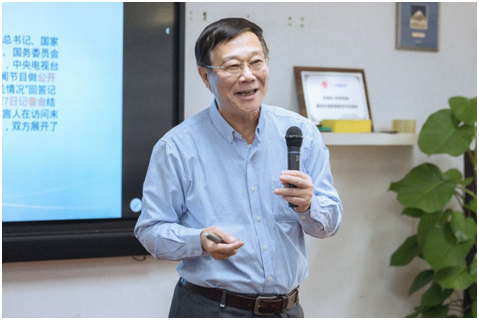
(Prof. Chen Jianping, Guangdong University of Foreign Studies)
Prof. Shi Dingxu discussed subjective adverbs in Chinese from the viewpoint of generative grammar and emphasized the crucial role of counterfactuals in some local dialects in expressing subjectively judged words and determining their syntax and semantics.
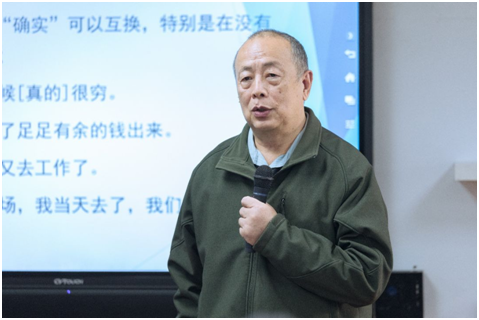
(Prof. SHI Dingxu, Guangdong University of Foreign Studies)
Prof. Xu Hai revealed the hidden and English-centered ideological issues in lexicography and proposed that English lexicography can be affected by their social values and culture, and that English learners should have critical identifying capabilities.
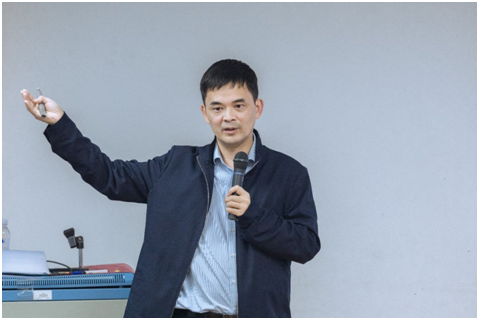
(Prof. XU Hai, Guangdong University of Foreign Studies)
Dr. Jin Nana reported on the meaning potential of English speech verbs and analyzed their typical features in different styles by using a corpus-based research method.
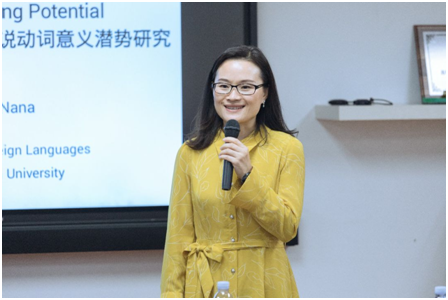
(Dr. JIN Nana, School of Foreign Languages, SZU)
Prof. Jiang Lin reported on the theoretical basis, research foundation and application of the “Expanding after Reading” theory. She stated the theory can not only compensate for insufficient foreign language circumstances and communication with native speakers, but also play a role in writing and improving foreign language expression.
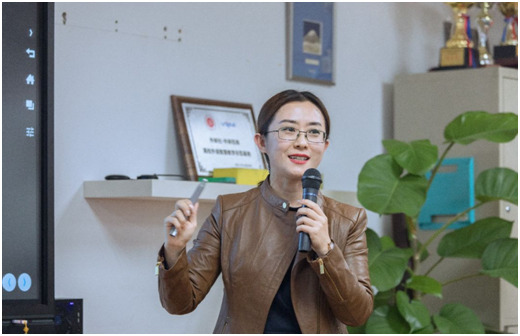
(Prof. JIANG Lin, Guangdong University of Foreign Studies)
On the basis of English pronunciation in America, the Netherlands and the Chinese mainland, Dr. Wang Hongyan discussed technological approaches to decide speakers’ identity on the basis of phonetic features of English vowels and consonants. The result has important value for applied academic research such as forensic linguistics and language education.
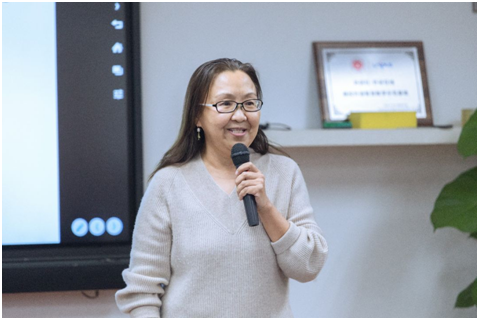
(Prof. WANG Hongyan, School of Foreign Languages, SZU)
Prof. Ouyang Huhua analyzed the difficulties and stumbling blocks for Chinese students in their English thesis writing. He also discussed solutions to get rid of Chinese ways of thinking and habits in teaching and writing, and methods to improve students’ English academic thesis writing abilities.
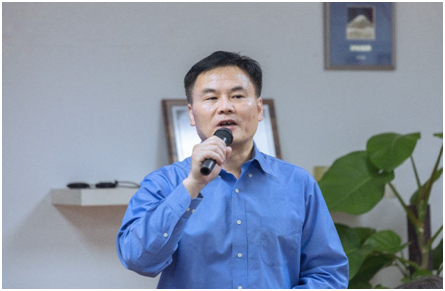
(Prof. OUYANG Huhua, Guangdong University of Foreign Studies)
Taking the term “legitimation” as an example, Prof. Liu Yi discussed further examples of the translation of social science terms. He also analyzed the possibilities of quotation, explanation and retelling during the process of foreign language term translation and semantic differences generated in this process.
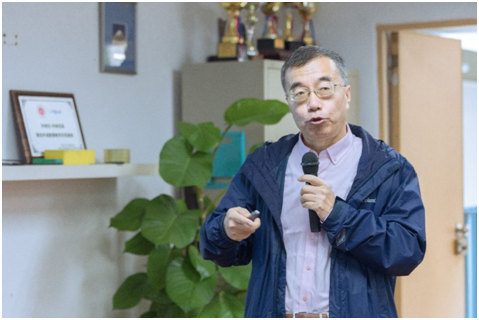
(Prof. LIU Yi, School of Foreign Languages, SZU)
Prof. Wei Zaijiang presented a comprehensive investigation of grammatical metonymy of whole quantitative parallel structures and pointed out that grammatical metonymy is one of the major ways of generating Chinese structures, and studies of Chinese covert quantity can adequately explain issues in Chinese syntax and word classes.
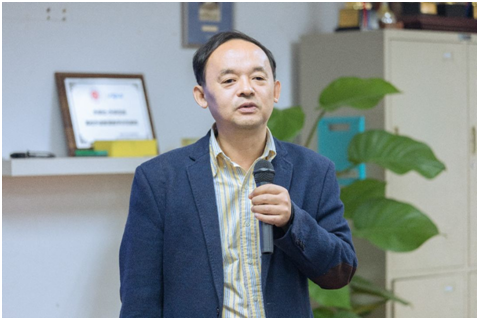
(Prof. WEI Zaijiang, Guangdong University of Foreign Studies)
Prof. Zhang Qingwen discussed similarities and differences in the usage of the Chinese degree adverbs, “yizai” and “zaisan”, which have the meaning of “one more time” and “again and again”, respectively. Both of these adverbs indicate “repetition in time”, but “yizai” has a sense of starting and sustained swelling up, but “zaisan” shows the repeatability of originality and does not have the sense of sustained swelling up.
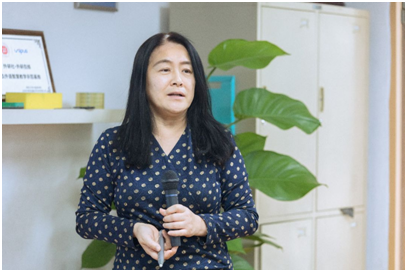
(Prof. ZHANG Qingwen, Guangdong University of Foreign Studies)
Dr. Zhang Yiqiong discussed the usage of emoticons in Chinese social media from the perspective of discourse pragmatics. On the basis of users’ comments on Guokr’s WeChat Official Account, Dr. Zhang systematically discussed how the usage of emoticons is constrained by the social and cultural customs in the real world.
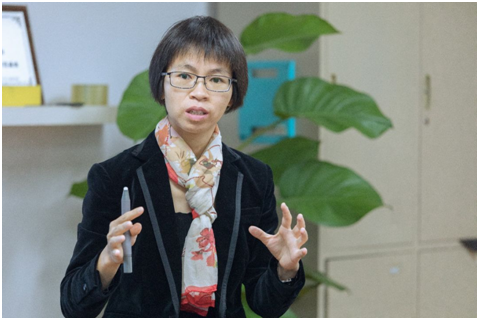
(Dr. ZHANG Yiqiong, Guangdong University of Foreign Studies)
Prof. Jeroen van de Weijer presented the different status of vowels in English compounds containing “-man”, and analyzed the possible effects of the age of these words, frequency of use, meaning, number of syllables, stress, spelling and other elements of such compound words on the pronunciation of their vowels.

(Distinguished Prof. Jeroen van de WEIJER, School of Foreign Languages, SZU)
Prof. Liu Yi presented a conclusion for this half-day seminar in the closing ceremony. Dean Zhang Xiaohong said the seminar formed the beginning of the connection between the two cities and a two-way collaboration under the construction of the area pilot demonstration and a vivid example of the “Xu Argument”. The School of Foreign Languages of Shenzhen University will continue its deep academic communication with Guangdong University of Foreign Studies to further its leapfrog development in foreign language studies.
